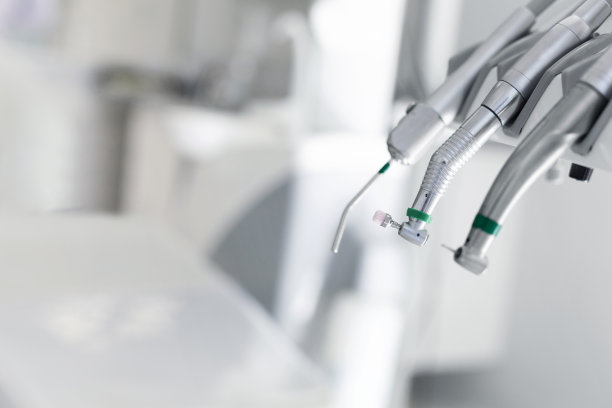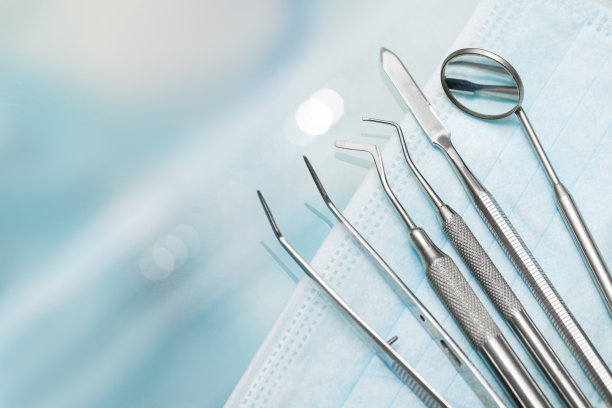Summary: Dental filling procedures are essential for maintaining optimal oral health. However, both pre- and post-procedure precautions are crucial. This article will explore essential actions to take before undergoing dental filling and steps to follow afterward, including proper dental care, dietary restrictions, and managing discomfort. It emphasizes that adequate preparation ensures not only the success of the procedure but also the longevity of the fillings, alongside maintaining overall oral hygiene and comfort. By adhering to these essential precautions, patients can enhance their recovery and achieve a healthy smile.
1. Importance of Pre-Dental Filling Preparations

Before undergoing a dental filling, adequate preparation is vital. One of the first actions involves scheduling a thorough dental examination. During this visit, your dentist can assess the extent of decay or damage that requires filling and discuss the most suitable materials and methods to use. It’s important for patients to voice any concerns about the procedure to understand what lies ahead.
In addition to a dental check-up, ensuring a clean mouth is beneficial. Patients should practice excellent oral hygiene, brushing and flossing their teeth thoroughly. This not only minimizes bacteria but also enhances the dentist’s ability to see the affected areas clearly, leading to a more effective filling procedure. Maintaining good hygiene helps achieve better overall outcomes.
Lastly, some patients may require sedation or anesthesia, making it crucial to determine any allergies beforehand. Patients should inform their dentist about their medical history and any medications they are currently taking to avoid contraindications. Knowing what to expect helps ease anxiety and prepares everyone for a smoother experience.
2. Post-Procedure Care for Optimal Recovery
After a dental filling, patients should be diligent about their post-procedure care. Initially, it is advisable to avoid eating or drinking until the anesthesia wears off to prevent biting the tongue or cheek unintentionally. This immediate precaution can spare many from unnecessary discomfort or injury.
Once the anesthesia has faded, patients should start with soft foods to avoid excessive chewing pressure on the newly filled area. Foods such as yogurt, applesauce, or mashed potatoes are ideal for the first few days, facilitating easier consumption and minimizing discomfort around the filling.
Alongside dietary modifications, maintaining proper oral hygiene remains crucial. Patients should continue to brush their teeth but might want to skip the filled tooth area initially to prevent irritation. It’s essential to floss gently to avoid dislodging the filling, ensuring the tooth remains clean without jeopardizing the integrity of the work done.
3. Managing Discomfort and Sensitivity
Post-filling discomfort is a common experience but should be manageable. Over-the-counter pain relievers, such as ibuprofen or acetaminophen, can alleviate any pain. However, should discomfort persist or worsen, it is critical to consult the dentist immediately to rule out any complications.
Temperature sensitivity is also a common complaint in the days following the procedure. Patients may notice that hot or cold foods and beverages trigger discomfort. Using toothpaste formulated for sensitive teeth can help alleviate this issue. Additionally, it’s wise to discuss any unusual sensitivity with the dentist, as it may require further intervention.
Being conscious of ones habits plays a key role in managing discomfort. Patients should avoid chewing on hard substances, which could place undue stress on the filling. Habits such as teeth grinding should also be addressed promptly, as they can lead to adverse effects on the filled tooth.
4. Regular Dental Visits and Maintenance
Regular dental visits are paramount even after receiving fillings. Patients should schedule follow-up appointments to allow their dentist to monitor the fillings status and surrounding health of the teeth. These check-ups help catch any potential issues early and ensure that the dental work is holding up well.
Beyond routine check-ups, maintaining good oral hygiene at home is crucial. Brushing twice a day and flossing daily remains the cornerstone of preventing decay in surrounding teeth. Using fluoride toothpaste can further support oral health and protect fillings from wear.
Lastly, patients should remain aware of their eating habits. Frequent consumption of sugary snacks can contribute to new cavities, potentially compromising the health of filled teeth. Opting for healthier snack alternatives can safeguard against future dental problems and support lasting oral health.
Summary:
In conclusion, taking essential precautions before and after dental filling procedures significantly contributes to optimal oral health. By focusing on pre-filling preparations, adhering to post-procedure care, managing discomfort effectively, and committing to regular dental visits, patients can ensure the longevity of their fillings and maintain overall oral hygiene.
This article is compiled by Vickong Dental and the content is for reference only.
Vickong Dental
Vickong Dental is a large medical group established in Hong Kong in 2008 by professors from well-known medical universities in Guangdong and Hong Kong, as well as medical doctors from key national '985' universities (including Master's supervisors and senior professors). The chain of branches brings together expert dentists with PhDs and Master's degrees from Hong Kong and Mainland China, committed to providing high-quality dental treatment.
"Vickong Dental Practices the University Motto of 'Healing and Serving Society,' with a Stable Operation for Sixteen Years. It Has Been honored with Hong Kong Enterprise Leaders's Choice,' and is a Global Trusted Implant Center for the Nobel Implant System. Recommended by Hong Kong Metro Broadcast and Guangdong Television, it Serves Customers from Over Thirty Countries and Regions, Gaining the Trust and Favor of Citizens from the Guangdong-Hong Kong-Macau Greater Bay Area and Surrounding Cities.

Thousands of customers' unanimous praise
The most recognized and highly recommended dental service by customers in the Guangdong-Hong Kong-Macau Greater Bay Area
We Ensure You Receive Detailed Care and Attention Here
Hong Kong standards, Shenzhen prices, Your Trusted English-speaking dentists

Vickong Dental Medical-Grade Instrument Disinfection Process
Vickong Dental Medical-Grade Instrument Disinfection Process

Vickong Dental Chain: A Warm and Comfortable Environment for Treatment






Appointment Hours

Q&A
Why choose Vickong Dental?
Vickong Dental practices the university motto 「Medicine to Benefit Society」, with each branch bringing together highly qualified dentists with doctoral and master’s degrees from Hong Kong and the Mainland, and has maintained seventeen years of steady operation。Recipient of 「2024 Hong Kong Enterprise Leaders Brand」, 「2025 Hong Kong Enterprise Leaders Brand」, a Nobel Biocare Global Trusted Implant Center, and a brand recommended by Metro Radio Hong Kong and Guangdong TV。
To date, we have served customers from more than thirty countries and regions,earning exceptionally high word-of-mouth recognition and trusted recommendations from residents across the Guangdong-Hong Kong-Macao Greater Bay Area and surrounding cities
We have eight major branches in Zhuhai、Shenzhen,and a consultation and service assurance center in Hong Kong,so you can book a free consultation at any time for any questions,which is very reassuring.
If I do not accept the quotation after the CT scan, will I be charged??
No! As long as the actual treatment has not started, you will not be charged any fees.
Will there be any additional charges during the treatment process?
No, there won’t be any additional charges. Before treatment begins, we will clearly explain the treatment plan and its corresponding fees. Only after the patient agrees and signs the consent form will we proceed with the dental service.
Can I pay in Hong Kong dollars?
Yes. Vickong Dental accepts payment in Hong Kong dollars. The amount will be converted based on the exchange rate of the day, and the applicable rate will be clearly communicated to you in advance.
Can I reschedule my appointment at any time?
Yes. Please contact us via **WeChat** or **WhatsApp** as early as possible, providing your original appointment time and details, along with your preferred new date and time slot for rescheduling.













